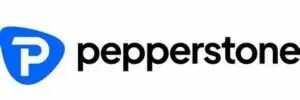Forex Brokers for Professional Traders 2026
By FXCOINZ Editorial
Last updated: Jul 11, 2024 • 6 Min Read
Overview
Searching for the top forex broker for professional traders? Based on our hands-on analysis, we’ve identified the 5 best options tailored to various trading needs. Practical tips from our experts are included.
Table of Contents
- Introduction
- Pepperstone
- ACY Securities
- AvaTrade
- Plus500
- IC Markets
- How to Choose the Best Forex Broker for Professional Traders?
- What Key Features Should Professional Traders Look for in a Forex Broker?
- How to Verify if a Forex Broker is Regulated?
- What are the Benefits of Using an Advanced Trading Platform?
- What to Avoid When Choosing a Forex Broker for Professional Trading?
- Why is Regulatory Compliance Important for Professional Traders?
- How to Evaluate the Competitiveness of a Broker’s Fees?
Introduction
Searching for the top forex broker for professional traders? Based on our hands-on analysis, we’ve identified the 5 best options tailored to various trading needs. Practical tips from our experts are included.
Professional traders require forex brokers that offer advanced trading platforms, tight spreads, high leverage, and reliable customer support. These brokers should also provide comprehensive market analysis tools, fast execution speeds, and robust regulatory oversight. This guide highlights the top forex brokers tailored specifically for professional traders, ensuring they have the resources and tools needed to succeed in the competitive forex market.
Pepperstone
Pepperstone

Founded in 2010, Pepperstone is an Australian-based forex broker renowned for its superior trading conditions. It offers a wide range of trading instruments, including forex, commodities, indices, and cryptocurrencies. With its focus on providing competitive pricing and excellent execution, Pepperstone is a preferred choice for professional traders worldwide.
Why We Chose It
Pepperstone stands out for its exceptional trading conditions, including ultra-low spreads, high leverage options, and advanced trading platforms like MetaTrader 4 (MT4), MetaTrader 5 (MT5), and cTrader. It is regulated by ASIC and known for its fast execution speeds, making it ideal for professional traders who need reliability and performance.
Pros
- Ultra-low spreads
- Multiple advanced trading platforms
- High leverage options
Cons
- Limited educational resources for beginners
- No proprietary trading platform
ACY Securities
ACY Securities

Established in 2011, ACY Securities is an Australian forex broker known for its strong regulatory framework and advanced trading tools. It offers a wide range of financial instruments and provides traders with access to high-quality market analysis, making it a top choice for professional traders seeking a reliable and informed trading experience.
Why We Chose It
ACY Securities offers professional traders a robust trading environment with competitive spreads, high leverage, and access to advanced trading platforms like MT4 and MT5. It is regulated by ASIC and provides comprehensive market analysis and research tools.
Pros
- Competitive spreads
- High leverage options
- Advanced trading platforms (MT4, MT5)
Cons
- Limited customer support during weekends
- Higher minimum deposit for premium accounts
AvaTrade
AvaTrade

Founded in 2006, AvaTrade is a globally recognized forex broker with headquarters in Dublin, Ireland. It offers a variety of trading platforms, including MT4 and MT5, and provides access to forex, stocks, commodities, indices, and cryptocurrencies. AvaTrade's strong regulatory framework and extensive educational resources make it a reliable choice for professional traders.
Why We Chose It
AvaTrade provides professional traders with a comprehensive trading platform that includes a wide range of trading instruments, competitive spreads, and high leverage options. It is regulated by multiple authorities, including ASIC, and offers extensive educational resources and market analysis tools.
Pros
- Wide range of trading instruments
- Competitive spreads
- High leverage options
Cons
- Inactivity fees
- Limited account customization
Plus500
Plus500

Founded in 2008, Plus500 is a leading forex and CFD broker based in Israel. It offers a proprietary trading platform that is easy to navigate and provides access to a wide range of financial instruments. Plus500's competitive pricing and regulatory oversight make it a solid choice for professional traders seeking a hassle-free trading experience.
Why We Chose It
Plus500 is favored by professional traders for its user-friendly platform, competitive spreads, and wide range of CFDs. It is regulated by ASIC and offers a straightforward trading experience with no commissions on trades.
Pros
- Competitive spreads
- Wide range of CFDs
- User-friendly platform
Cons
- Limited advanced trading features
- No educational resources
IC Markets
IC Markets

Founded in 2007, IC Markets is a leading forex broker headquartered in Sydney, Australia. It provides traders with access to a wide range of financial instruments, including forex, indices, commodities, and cryptocurrencies. IC Markets is well-known for its competitive pricing and excellent trading conditions, making it a popular choice among both retail and institutional traders.
Why We Chose It
IC Markets is renowned for its ultra-low spreads, fast execution speeds, and advanced trading platforms, including MT4, MT5, and cTrader. It is regulated by multiple authorities, including ASIC, making it a top choice for professional traders who demand reliability and performance.
Pros
- Fast execution speeds
- Ultra-low spreads
- Advanced trading platforms (MT4, MT5, cTrader)
Cons
- Higher minimum deposit for advanced account types
- Limited customer support on weekends
How to Choose the Best Forex Broker for Professional Traders?
Choosing the best forex broker for professional traders requires careful consideration of several key factors:
- Regulation and Trustworthiness: Ensure the broker is regulated by reputable financial authorities such as ASIC, FCA, or CySEC. Regulatory oversight provides a level of security and accountability, safeguarding traders’ funds and ensuring fair trading practices.
- Trading Platforms: Professional traders need advanced trading platforms like MetaTrader 4 (MT4), MetaTrader 5 (MT5), or cTrader. These platforms offer superior charting tools, automated trading capabilities, and a wide range of technical indicators.
- Execution Speed and Reliability: Fast and reliable trade execution is crucial for professional trading. Look for brokers that offer low latency and high-speed execution, which can make a significant difference in trading performance, especially for scalpers and high-frequency traders.
- Spreads and Commissions: Competitive spreads and low commissions are vital for reducing trading costs. Brokers that offer tight spreads and transparent fee structures can help maximize profitability.
- Leverage Options: Professional traders often require higher leverage to capitalize on market opportunities. Ensure the broker offers flexible leverage options that align with your trading strategy and risk management practices.
- Range of Instruments: A diverse range of trading instruments, including forex pairs, commodities, indices, and cryptocurrencies, allows professional traders to diversify their portfolios and explore various market opportunities.
- Customer Support: Reliable and responsive customer support is essential for resolving issues quickly and efficiently. Look for brokers that offer 24/7 support via multiple channels, including live chat, email, and phone.
- Additional Tools and Resources: Access to market analysis, economic calendars, trading signals, and educational resources can enhance trading performance. Choose brokers that provide comprehensive tools and resources to support your trading journey.
By evaluating these factors, professional traders can identify forex brokers that offer the advanced features, security, and support needed for successful trading.
What Key Features Should Professional Traders Look for in a Forex Broker?
Professional traders should look for brokers that offer low spreads, high leverage, fast execution speeds, and advanced trading platforms like MT4, MT5, or cTrader. Additionally, brokers should provide comprehensive market analysis, research tools, and strong regulatory oversight to ensure a secure and efficient trading experience.
How to Verify if a Forex Broker is Regulated?
To verify if a forex broker is regulated, check the broker’s website for information on their regulatory status and the authorities they are regulated by. You can also visit the regulator’s official website (such as ASIC, FCA, or CySEC) and search for the broker’s name to confirm their registration and compliance.
What are the Benefits of Using an Advanced Trading Platform?
Advanced trading platforms like MT4, MT5, and cTrader offer professional traders a wide range of features, including advanced charting tools, automated trading capabilities, customizable indicators, and real-time market data. These platforms provide a comprehensive trading environment that enhances analysis, execution, and overall trading efficiency.
What to Avoid When Choosing a Forex Broker for Professional Trading?
When choosing a forex broker for professional trading, avoid brokers with high spreads, unreliable execution speeds, limited trading instruments, poor customer support, and lack of regulatory oversight. Additionally, be cautious of brokers with hidden fees, high minimum deposits, and insufficient trading tools or resources.
Why is Regulatory Compliance Important for Professional Traders?
Regulatory compliance ensures that a broker operates under strict financial standards and provides a secure trading environment. Professional traders rely on regulated brokers to safeguard their funds, maintain transparent operations, and adhere to ethical trading practices, which are crucial for successful trading.
How to Evaluate the Competitiveness of a Broker’s Fees?
Evaluating the competitiveness of a broker’s fees involves a thorough assessment of several cost components associated with trading. Here are key factors to consider:
- Spreads: The spread is the difference between the bid and ask price of a currency pair. Tight spreads are crucial for traders as they directly impact trading costs. Compare the average spreads offered by different brokers, especially on frequently traded currency pairs. Brokers with variable spreads might offer tighter spreads during high liquidity periods but wider spreads during volatility, so consider your trading style and market conditions.
- Commissions: Some brokers charge a commission per trade in addition to spreads. Typically, this applies to ECN (Electronic Communication Network) brokers. Calculate the total cost by adding the spread and commission per trade to get a clear picture of the actual cost.
- Overnight Fees (Swap Rates): For traders holding positions overnight, swap rates (also known as rollover fees) can significantly impact profitability. These rates are determined by the interest rate differential between the two currencies in the pair and the broker’s own policies. Compare swap rates across brokers for long and short positions to understand potential costs.
- Deposit and Withdrawal Fees: Evaluate the fees associated with depositing and withdrawing funds from your trading account. While many brokers offer free deposits, withdrawal fees can vary. Consider the methods offered (bank transfer, credit/debit card, e-wallets) and any associated costs.
- Inactivity Fees: Some brokers charge an inactivity fee if your trading account remains dormant for a specified period. Check the broker’s policy on inactivity fees to avoid unexpected charges.
- Currency Conversion Fees: If you trade in a different currency than your account’s base currency, you might incur currency conversion fees. Understand the broker’s conversion rates and how they compare to the market rates.
- Platform and Data Fees: While most brokers offer free access to trading platforms like MT4 and MT5, some might charge for premium features, advanced data feeds, or access to proprietary platforms. Consider these costs if you require advanced functionalities.
- Other Hidden Fees: Review the broker’s terms and conditions for any hidden fees that might not be immediately apparent. This includes account maintenance fees, administrative fees, or any charges for additional services.
- Comparison Tools: Use broker comparison tools and reviews from reputable sources to see how different brokers stack up in terms of fees. These tools often provide side-by-side comparisons of spreads, commissions, and other costs.
By systematically evaluating these factors, you can identify brokers that offer competitive fees, helping to maximize your trading profitability.
© 2026 FXCOINZ. All Rights Reserved.





